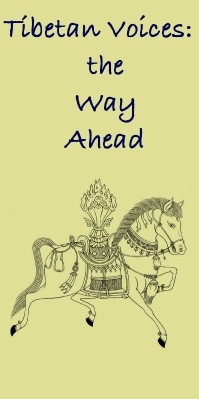An Open Letter by Tibetan University Students in the UK
Mao Tsetung once said, “Where there is oppression, there is resistance”; and in 2008, Tibetans risked everything to speak out. The Uprising in March has been the strongest message to the outside world from Tibetans inside Tibet since 1959. The special meeting in Dharamsala from November 17th − 22nd that has been called by His Holiness the Dalai Lama is a unique platform to revitalize the movement. Thus, we Tibetan students in the UK would like to voice our suggestions at this crucial time to the international Tibetan community and the public.
Tibetan efforts have long been characterized by sincere moves and sacrifices. Therefore we are asking: Did the Dalai Lama’s envoys carry out eight rounds of meetings with Chinese government officials over a period of 6 years, only to have Zhu Weiqun, Vice−Minister of the United Front Work Department, say in a televised press conference in Beijing “If one day, [the Dalai Lama] really seizes power, he will without any compunction or sympathy carry out ethnic discrimination, apartheid and ethnic cleansing”?
However, one thing is undeniable: Tibetans inside and outside Tibet have never been this united! According to Einstein, the definition of madness is doing the same thing over and over again and expecting a different result. The Chinese government’s behaviour and demands are unreasonable so how can we reason with them? This time let’s reveal our true feelings. It’s our basic inherent right to express our feelings as a nation irrespective of history.
We are proud of our achievements in exile and of our democratisation process. For the special meeting in Dharamsala, we, the Tibetan students in the UK, hope for an outcome that will emphasise the solidarity we feel with our brothers and sisters inside Tibet. They inspire and guide us. We are here for them.
For the Tibetan Government in Exile (TGIE) we have the following suggestions:
Increased transparency
The lack of transparency in the dialogue process with the Chinese government since 2002 has led to confusion. The special meeting has been called in a state of emergency and at what appears to be the end of the dialogue. Increased transparency, communication and participation would truly be democracy in practice.
TGIE’s Agendas should be circulated and meetings should be held in each Tibetan community in order to give feedback. We are asking the international community to recognise the TGIE, but a real democracy encourages the political participation of the people. If Tibetans were more involved in the political decision making process, they would truly respect the TGIE which increases political credibility.
Respect and Empower Tibetans from Tibet
There are no Tibetans born in exile who know the Chinese system as well as Tibetans from Tibet. With regard to their inside knowledge and Chinese language skills, the views and opinions of Tibetans from Tibet should come first.
Tibetans from Tibet should be given more prominent roles in TGIE and TGIE decision−making processes. It would increase political effectiveness and create more homogeneity in the exile community.
Youth Empowerment
As common practice, democratic political parties have groups and departments especially for the youth. TGIE should engage with young Tibetans who will be the future leaders of the movement. Youth groups affiliated with TGIE could interact with youth groups of political parties in their own countries. Furthermore, linked with increasing transparency and empowering youth, TGIE should offer internships in all their administrative departments all over the world. TGIE should fund more scholarship programmes for Tibetans to study outside of India.
For the general public we have the following appeal:
Take the Tibetan issue seriously as a political issue that goes beyond any single person or single theme! Tibet is an issue that relates to political relations of countries with China, the environment, security in Asia and thus in the rest of the world. Therefore, as a political issue, governments all around the world should be lobbied to urge China to withdraw their troops from Tibet, stop the re−settlement of Han Chinese to Tibet, allow exile Tibetans to travel freely to Tibet and vice versa, allow exile Tibetans to provide direct financial support to Tibetans in Tibet, and grant equal opportunities and rights to Tibetans in all three regions of Tibet.
For all young Tibetans we have the following message:
We are young Tibetans and amongst us are the future leaders of our movement. In our future professions we have to incorporate Tibetan issues whenever possible. Take inspiration from Tibetan voices such as Woeser, Jamyang Kyi and the tens of thousands of Tibetans who rose up. The day will come when we will have to take the Tibet movement into our own hands. We will be confident, ready and more than capable. Deeply inspired by His Holiness the Dalai Lama, we have grown up shaped by the ideal of non−violence and compassion. This is a great honour and advantage for us and for all young Tibetans.
We, Tibetan students in the UK, feel it is time to tell the world that we are one people and one nation! China must listen to the wishes of Tibetans. We are a young generation, in it for the long haul and we will continue until Tibetans in Tibet are content and satisfied with their lives. We want to tell the world that we are the positive change and that, standing in solidarity with our Tibetan brothers and sisters, we are ready to shape history.
Where there is oppression there is resistance.

